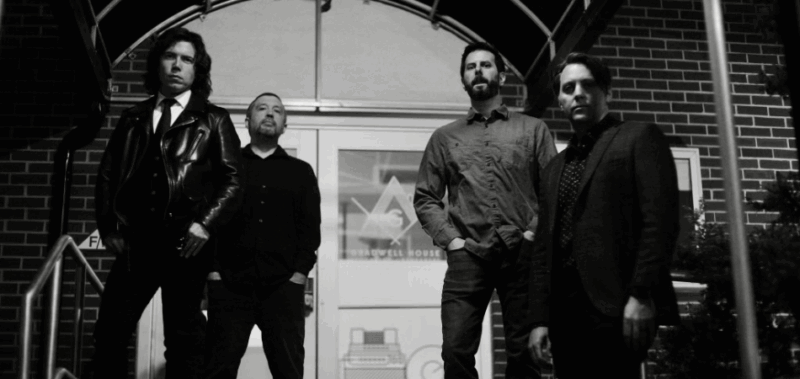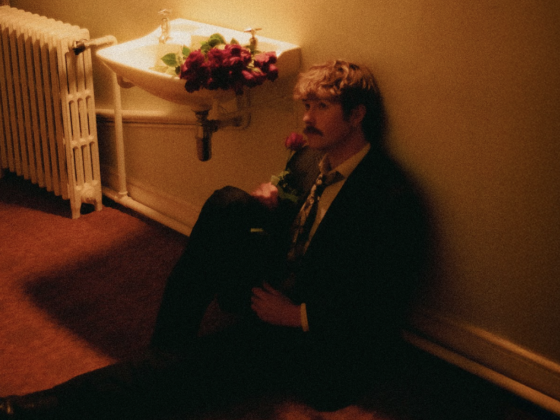New Jersey rock quartet The Modbeats have released their debut LP Ballad of a Starving Artist.
Self-styled as as “love letter to the golden age of rock and roll and a candid reflection on modern life,” Ballad of a Starving Artist is a mix of surf rock, power pop, blues, psychedelia, and rockabilly.
There is a potential danger when bringing in more classic rock and roll influences that the result will be a dated pastiche rather than something individual to the band emulating this style. However, in the case of The Modbeats’ debut effort, this very much isn’t the case.
Having started out with a plan to release two or three original songs, the band eventually evolved into a full quartet working on a concept album. Written and produced by Modbeats frontman Philip Dunn, the entire album was centred around the title track, “Ballad of a Starving Artist,” which tells the story of one of the band’s friends who, at that time, was pursuing a film career in LA. Having then morphed into an entire 10-track, 40-minute LP, this idea clearly grew legs of its own and ran away from its original idea.
According to frontman Philip Dunn, “[it] was a kind of defiance in the face of so many obstacles – creative, personal, societal – [and] became the heartbeat of the album. And the more I listened back, the more I found myself in these songs too.”
Opening up with the boyband-era Beatles-style “Ballad of a Starving Artist,” the album then moved into the darker, rockier Deep Purple-edged “Rocking Chair”, which features a driving, rhythmic guitar opener that continues throughout the track. Alongside another, more melodic lead guitar track, classic rock drums and twinkly glockenspiel, “Rocking Chair” is very evocative of 70s classic rock, albeit with much more modern vocals and production.
“Passers-Bye,” my personal pick for standout track, has a heavily-Kinks inspired sound, portraying the feeling of unseen pain being invisible to others (the passers-by), as the vocals sing “misery just goes unseen yeah/misery just goes unseen,” punctuated by melodic ‘ah-whoa-ah-whoa-oh’s and a catchy guitar melody.
This track is then followed up with my other personal favourite, “Shadow Oak Drive,” which features vocalist Philip Dunn at his most melodic, even alongside his wonderfully scratchy delivery. If “Passers By” is a tribute to The Kinks, then “Shadow Oak Drive” is the same but for XTC’s pastoral, folk-y years – not just in sound, but lyrically as well.
Halfway through the album, the band pick up their harder rock sensibilities again, on the rockabilly-inspired “Frankie.” It’s an unabashedly catchy trip down a nostalgic lane, but the effect is more 80s-pastiche-of-50s-rockabilly rather than a more classic evocation of the original style. This isn’t necessarily a negative thing, but it is something the album as a whole does lean towards – it can be hard to recapture the production and idiosyncratic fuzziness of early rock genres, even if The Modbeats are giving it their best try.
The second attempt at rockabilly, their most played song “Hold Me Roll Me” is a more successfully similar version. You almost expect a the vocals to scream “great balls of fire” at any moment, even as the glockenspiel appears again, before the song goes into an extended guitar solo.
Finishing up the album is the track “These Are The Shapes Of Things To Come,” which unlike the rest of the album feels like something solidly 90s, even as it borrows the vibe of Fleetwood Mac’s “Albatross”. It’s a gentle, slow song, which dual-wields guitars and also brings in the warm tones of a hammond organ. The result is Greg Lake-by-way-of-The Stone Roses with some Pink Floyd licks thrown in, and it’s really the perfect way to finish up the album.
Ballad of a Starving Artist is a very solid LP from start to end, which attempts to fill the big shoes of rock history. While its classic inspirations sometimes aren’t purely successful on their own, the actual songwriting and instrumentation speaks for itself, and The Modbeats’ first effort is one that’s well worth sitting with and taking some time to admire.









